Guide to Selecting Environmentally Safe Flooring
May 8, 2023
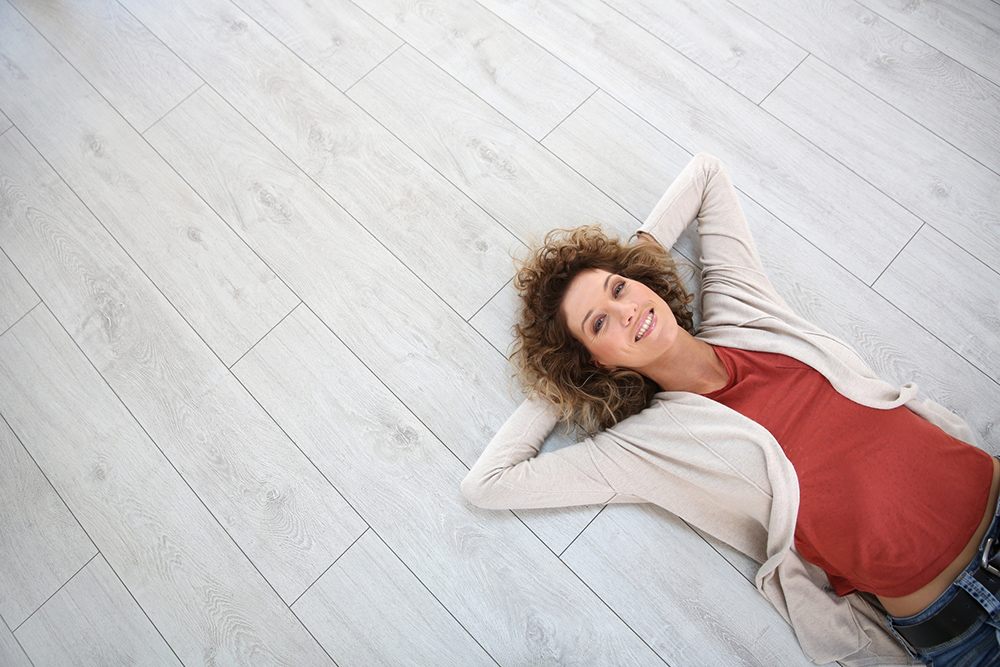
Cork Flooring
This is an excellent flooring option for those looking for something renewable and durable, with a slight “give” for tired feet. Cork is actually the bark from a specific type of oak tree, so the tree doesn’t have to die for the cork to be harvested. Cork flooring can also come from recycled content of wine bottles (surprise!) making it all the more sustainable. It adds a unique, earthy look to the home and is well-insulated. This could mean lower heating costs, warmer feet, and less stomping noise if used upstairs. The way you finish cork is of special consideration. You’ll want to use a special vapor barrier to seal the cork while avoiding formaldehyde emissions, in addition to a non-toxic glue for adhering the cork to the subfloor. The core of this flooring can also contain something called high-density fibreboard, so look for non-toxic brands to avoid VOCs (volatile organic compounds). The type of oak that cork is harvested from doesn’t grow in the United States, so this might not be the right choice for those concerned with using locally-sourced materials. The average cost of cork flooring falls between $3 and $8 per square foot.
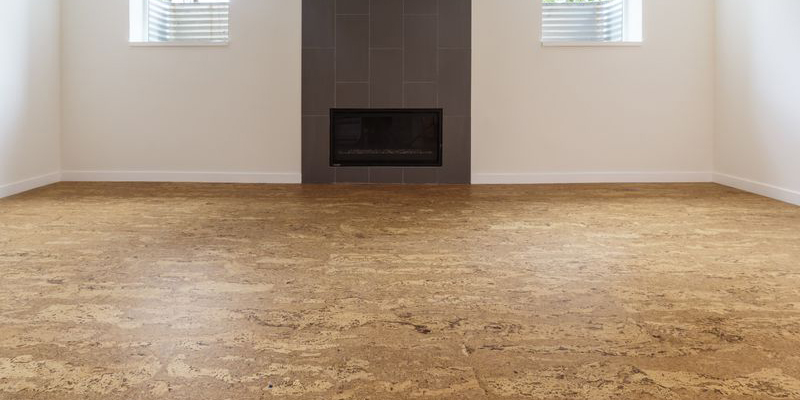
Bamboo Flooring
Bamboo actually isn’t wood. It’s technically a grass, and it doesn’t require fertilizers or pesticides. Instead, bamboo forests actually supply habitat for insects and birds alike. Plus, it only takes about 5 years from planting to harvest. Bamboo does grow in the United States, but most flooring is typically made from bamboo in Asia, so it may not be great for those looking for locally-sourced options. In addition, working conditions have come into question with some of the major Asian suppliers. However, bamboo is very durable, sustainable, and even antimicrobial. This strong flooring is also available with formaldehyde-free finish and some brands are FSC-certified (Forest Stewardship Council). The average cost in the United States ranges from $5 to $7 per square foot.
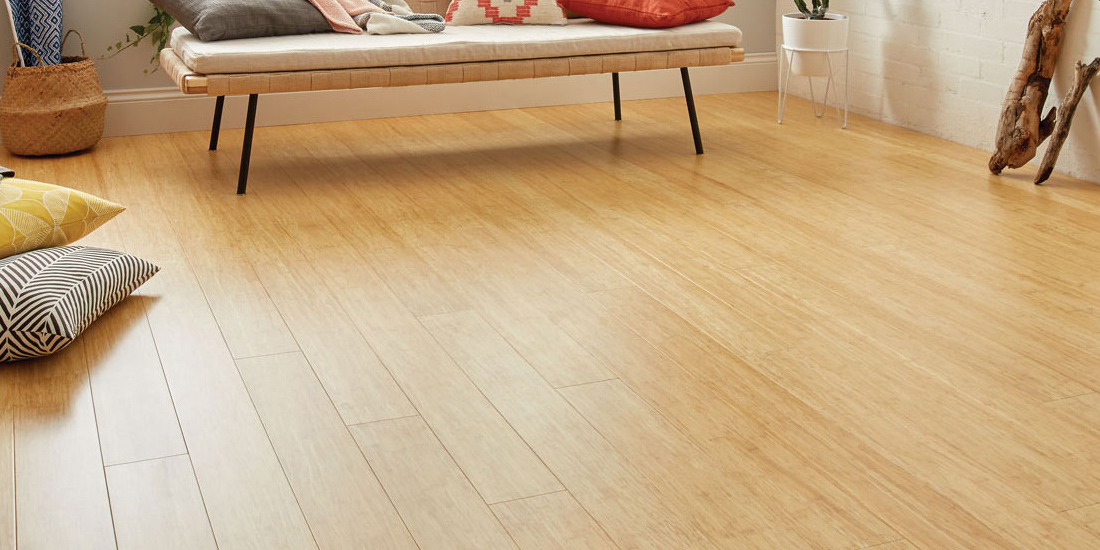
Solid Hardwood Flooring
This is certainly a more natural option, but it does require trees to be cut down. You can purchase hardwood flooring that is FSC-certified and even locally-sourced. Hardwood flooring requires finish. Oiling your floors instead of sealing with polyurethane can be an effective option to reduce chemicals being brought into a home that’s already in use. In addition, it may make future flooring repairs easier than with the polyurethane finish. Hardwood floors are sensitive to UV radiation, which can cause some discoloration. Keep this in mind with rooms with lots of windows. Furniture, rugs, and other items that rarely move can make any discoloration from UV light seem more obvious. Pine tends to be soft and picks up scratches or dents more readily. For durability, opt for a harder wood such as oak or maple. Costs range between $2 to $5 per square foot, for unfinished domestic hardwoods in the States.
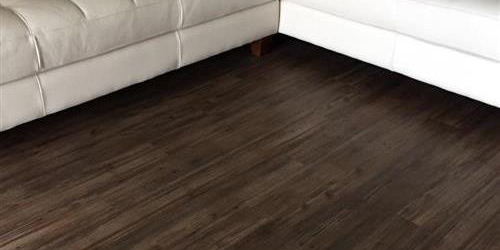
Engineered Hardwood Flooring
Hardwood only covers the top layer of this flooring. The inside layers are made of plywood to form the laminated core, which can help limit deforestation and help with soundproofing a home or floor of a building. Once finished, engineered wood looks like any other hardwood flooring. However, the finished product typically contains VOCs and is less durable than traditional solid hardwood. Engineered hardwood flooring does work especially well with radiant heating. The price of engineered hardwood flooring ranges from $3 to $5 per square foot.
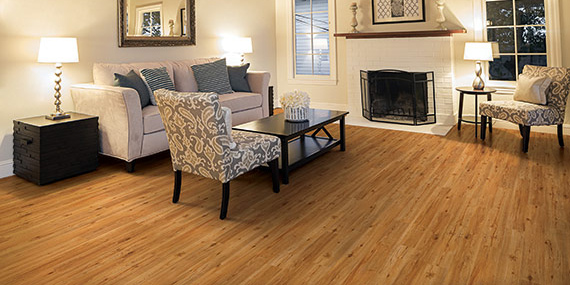
Reclaimed Wood Flooring
If you can find a local source, this stuff takes the cake! You’re recycling wood that was already in use, so there’s no deforestation involved. It’s natural and adds a rustic charm to any home it’s installed in. Reclaimed wood is likely to need some cleaning, planning, and fresh paint, which can all be done outdoors for safety reasons. Once installed, it can be sealed with oil as a non-toxic and durable option. The tricky part about reclaimed wood flooring is installation or “re-assembly.” It can be difficult to get boards to line up evenly. The final result is largely affected by how carefully the wood was disassembled from its original location prior to prep and installation in the new home. Currently, the average cost of reclaimed wood flooring in the United States for 2018 is $10.43 per square foot, before labor.
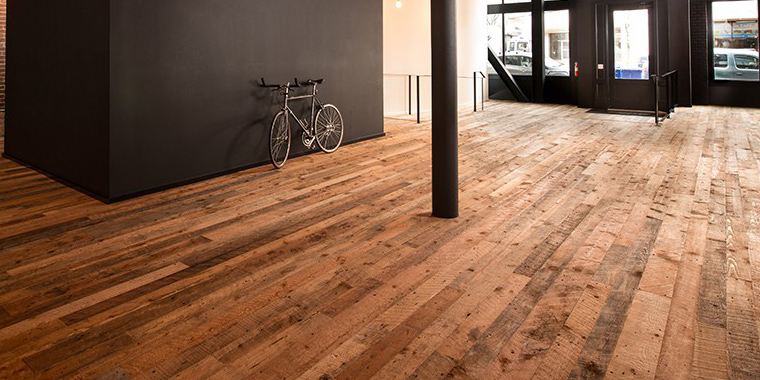
Salvaged Wood
This is similar to reclaimed wood but typically comes from the bottom of rivers or lakes as opposed to a previous building. It is often wood that was lost from distribution efforts centuries ago when timber was most commonly transported along waterways. It may seem counterintuitive, but wood that has been submerged deep underwater for years may be in better condition than fresher alternatives. Water pressure pushes the sap out of trees while low oxygen levels reduce rot. Salvaged wood has a lovely character with deep, rich coloring. In terms of care, it will need to be treated pretty much the same as any other wood flooring. Prices are similar to other reclaimed wood flooring options, at $10 or higher per square foot.
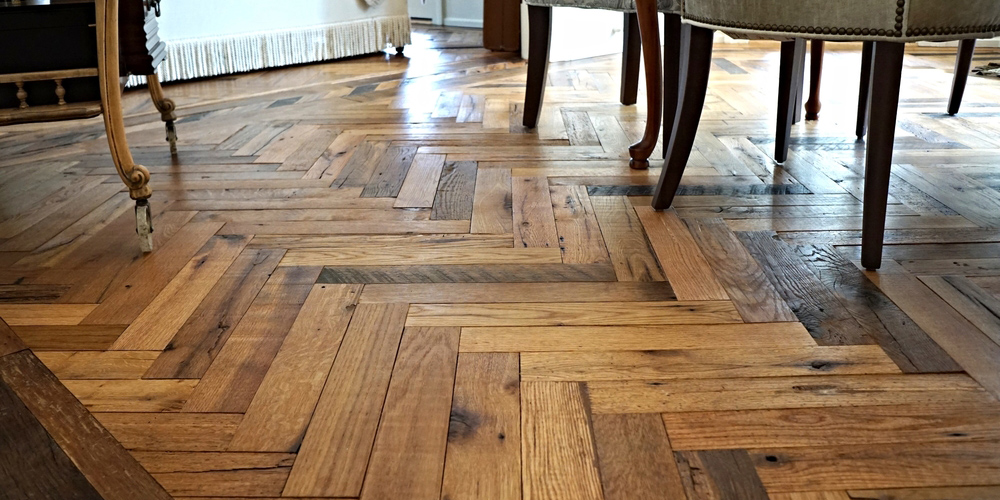
Palm Wood Flooring
From an eco-friendly perspective, this flooring option has its pros and cons. It comes from palms that no longer produce coconuts at large-scale farms, which is great to make use of every part of the tree – but not so great when you think about supporting most palm oil plantations. There are a variety of types to match any style of home. Finishing and care for palm wood flooring is similar to that of bamboo flooring, so just be careful about formaldehyde and VOCs in sealants or adhesives. Costs are similar to many high-end wood flooring options, averaging at about $8 per square foot, before labor.
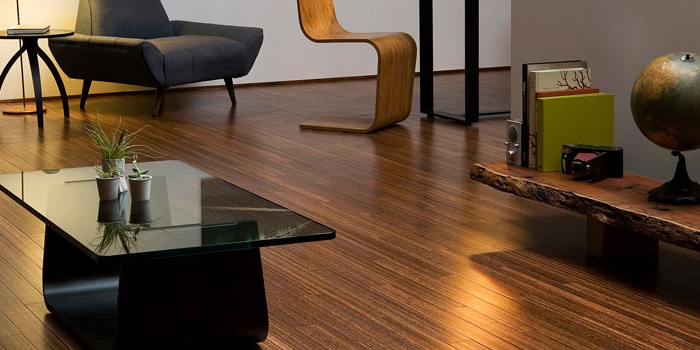
Porcelain or Ceramic Tiles
Both ceramic and porcelain tiles are made of clay. Porcelain tends to be a more refined clay, that makes for a harder tile and more variety in design, but that’s the only major difference. Ceramic and porcelain tiles are sustainable and non-toxic, which is great for adding to homes that are already in use. Just be careful to use low-VOC grout during installation. Tile can be very unique and production changes rapidly, so once you settle on a flooring – be sure to purchase a few extra tiles to keep stored away for repairs in case one ever breaks. Porcelain and ceramic tile costs can vary widely, especially if imported and may range anywhere between $3 to $12 per square foot.
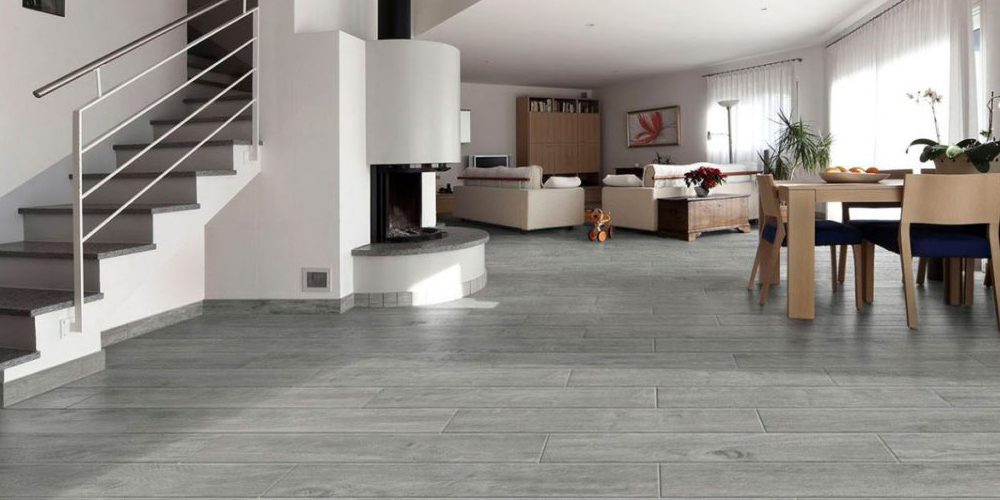
Linoleum & Marmoleum
Many of us think of mom’s old kitchen when we hear the word “linoleum,” but it doesn’t have to be outdated or bad for the environment. Many current linoleum or Marmoleum options look similar to ceramic tile in appearance but are made from sustainable materials such as burlap, cork dust, wood chips, calcium carbonate, or solidified linseed oil. Not to be confused with vinyl tiles, linoleum can be anti-allergenic, anti-bacterial, and durable. However, it does come in rolls which always require installation by a specialist due to the varying patterns on the floor. Costs for linoleum or Marmoleum range from $5 to $12 per square foot, before labor.
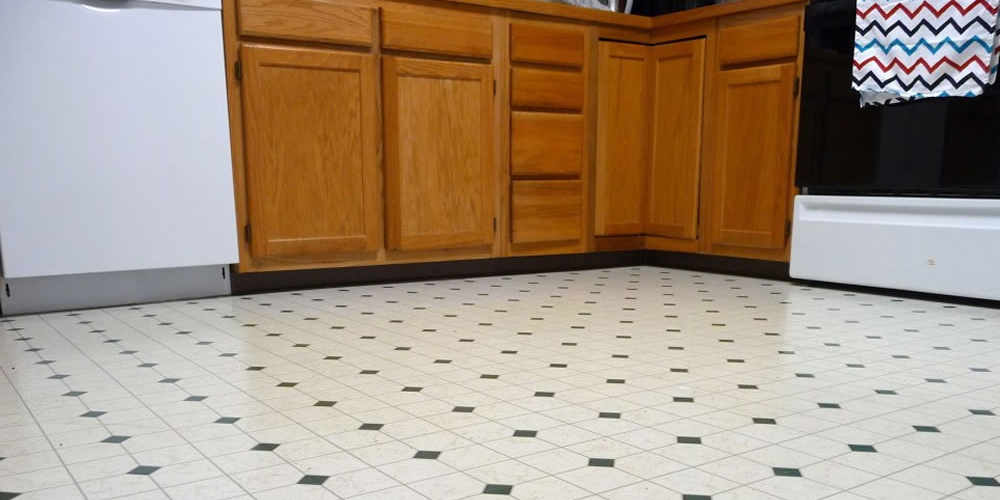
Slate Flooring
Slate is a naturally-occurring stone that comes from what was once the bottom of a large lake or ocean. Slate stones are common in Canada’s Quebec and Newfoundland regions, where they can be locally-sourced. The stones vary greatly in texture and color. Slate also holds heat well and may be polished as a safer method of finishing, instead of sealants. Costs for slate flooring cover a wide range, between $4 to $25 per square foot.
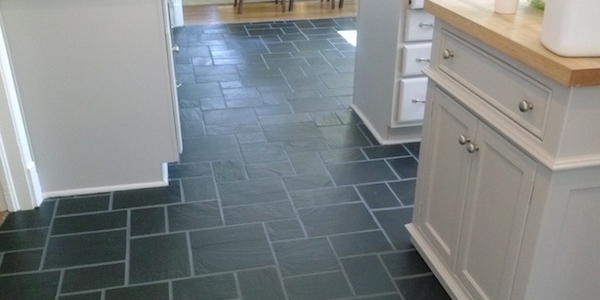
Polished Concrete
While concrete production itself can emit a lot of greenhouse gases, the final product installed to the home is non-toxic for humans. Concrete flooring is also surprisingly versatile in appearance, as it can be cut or stained to look like slate or tile. This floor option is highly durable and holds heat well, but may not be the best choice for families with kids due to safety reasons. It may be slippery and any falls or dropped dishes will be just the same as if they had happened on the sidewalk outside. It can also be rather uncomfortable to stand on concrete floors for long periods of time, so mats are highly recommended for kitchens and other areas that require extended standing. Polished concrete flooring can be very cost-effective, and might be a good option for finishing basements or garages, averaging between $2 and $12 per square foot.
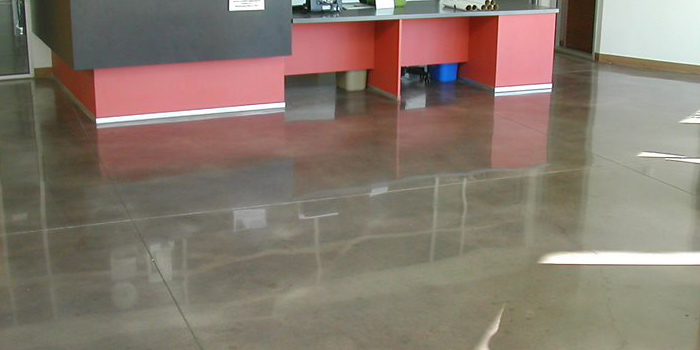
Carpet & Area Rugs
The carpet production industry deserves an honorable mention as it has come a long way with regulating emissions, but it still can have a detrimental effect on the air quality within a home. If that is of concern in your green pursuits, it may not be the choice for you. If your family struggles with allergies, consider that carpet can trap pet dander, dust, bacteria, and a host of other fibers, airborne contaminants, or chemicals that may increase sensitivity. It can be difficult to keep these surfaces clean with vacuuming alone. On the bright side, carpet is comfortable for feet, less painful for little ones learning to walk, and a dish or two might survive if dropped (although protecting against stains is a whole other ordeal). Recycled carpet or wool rugs may be the healthiest, most eco-friendly solutions available for purchase at this time. The average cost per square foot of carpet varies widely, falling between $3 to $15 before installation.


